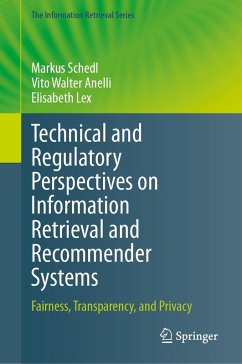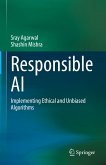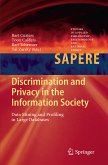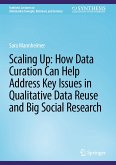After an introduction, the book first provides an overview of recent initiatives and already operational policies to regulate AI technology and discusses them in the context of IRRSs, focusing on regulations in Europe, the US, and China. Subsequent chapters present categories of biases, their relation to fairness and non-discrimination and ways to discover and mitigate harmful biases; major facets of transparency, with a focus on explainability (including common strategies to achieve it), traceability, and auditability; and privacy and security including technical approaches to mitigate privacy risks such as anonymization techniques and encryption methods. Eventually, the last chapter provides an outlook on the grand challenges in IRRSs, such as dealing with discrepancies between formal attempts, human perception, and regulatory frameworks for trustworthy IRRSs; understanding the capabilities and limitations of existing solutions in terms of fairness, transparency, and privacy; and adopting a multistakeholder perspective when developing solutions for fair, transparent, and privacy-preserving IRRSs.
The book targets a mostly technical readership and aims to equip it with the necessary understanding of the ethical implications of their research and development in IRRSs as well as of recent policy initiatives and regulatory approaches. While a basic knowledge of IRRSs is assumed to fully comprehend the more technical and algorithmic parts of the book, even a lay audience in terms of technical background should benefit from the book.
Dieser Download kann aus rechtlichen Gründen nur mit Rechnungsadresse in A, B, BG, CY, CZ, D, DK, EW, E, FIN, F, GR, HR, H, IRL, I, LT, L, LR, M, NL, PL, P, R, S, SLO, SK ausgeliefert werden.









